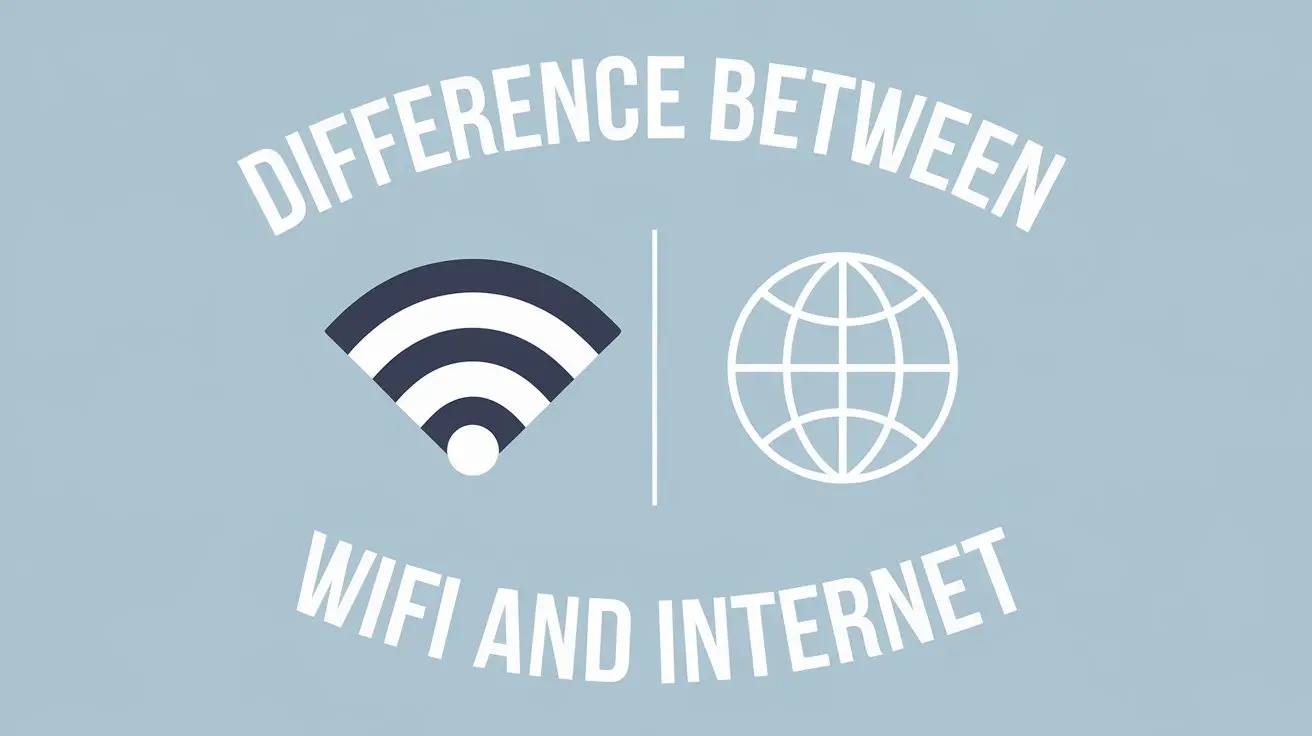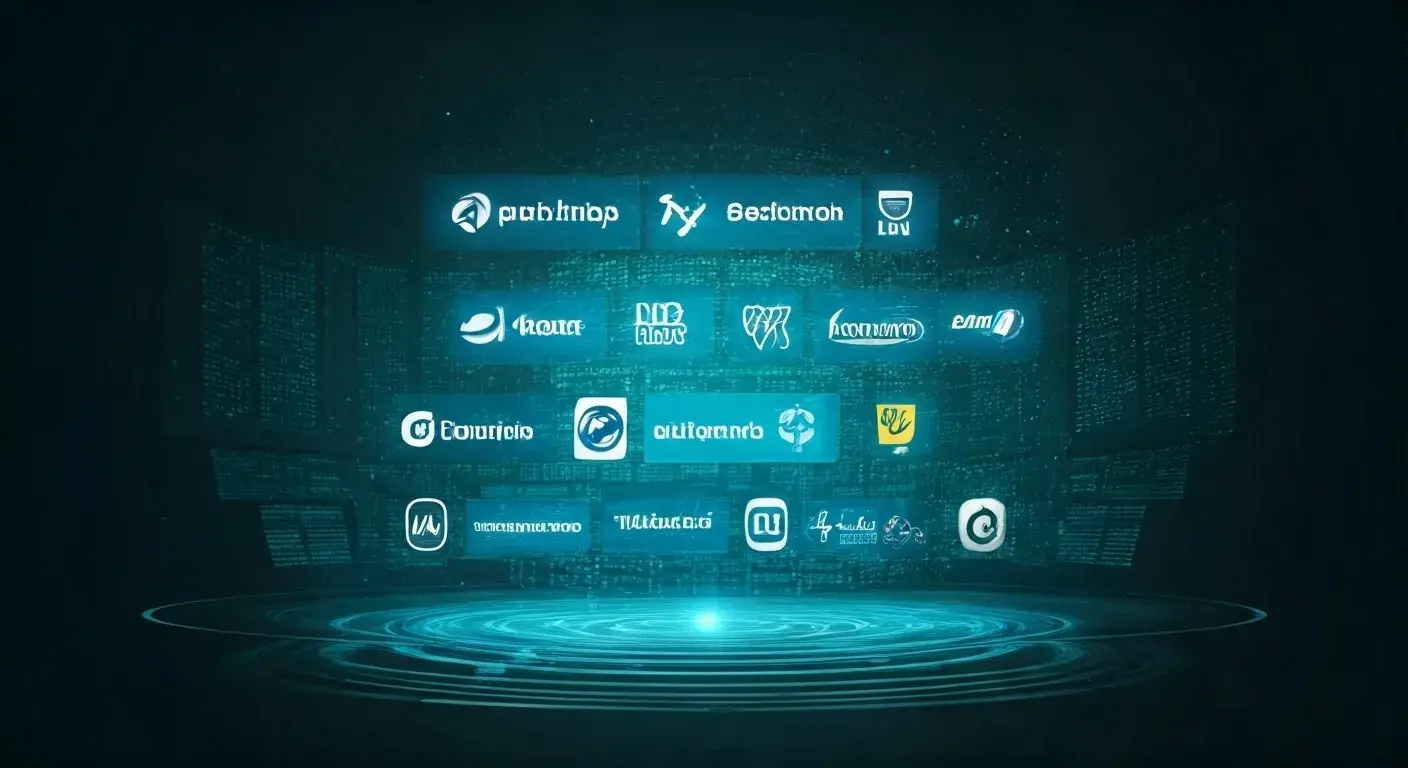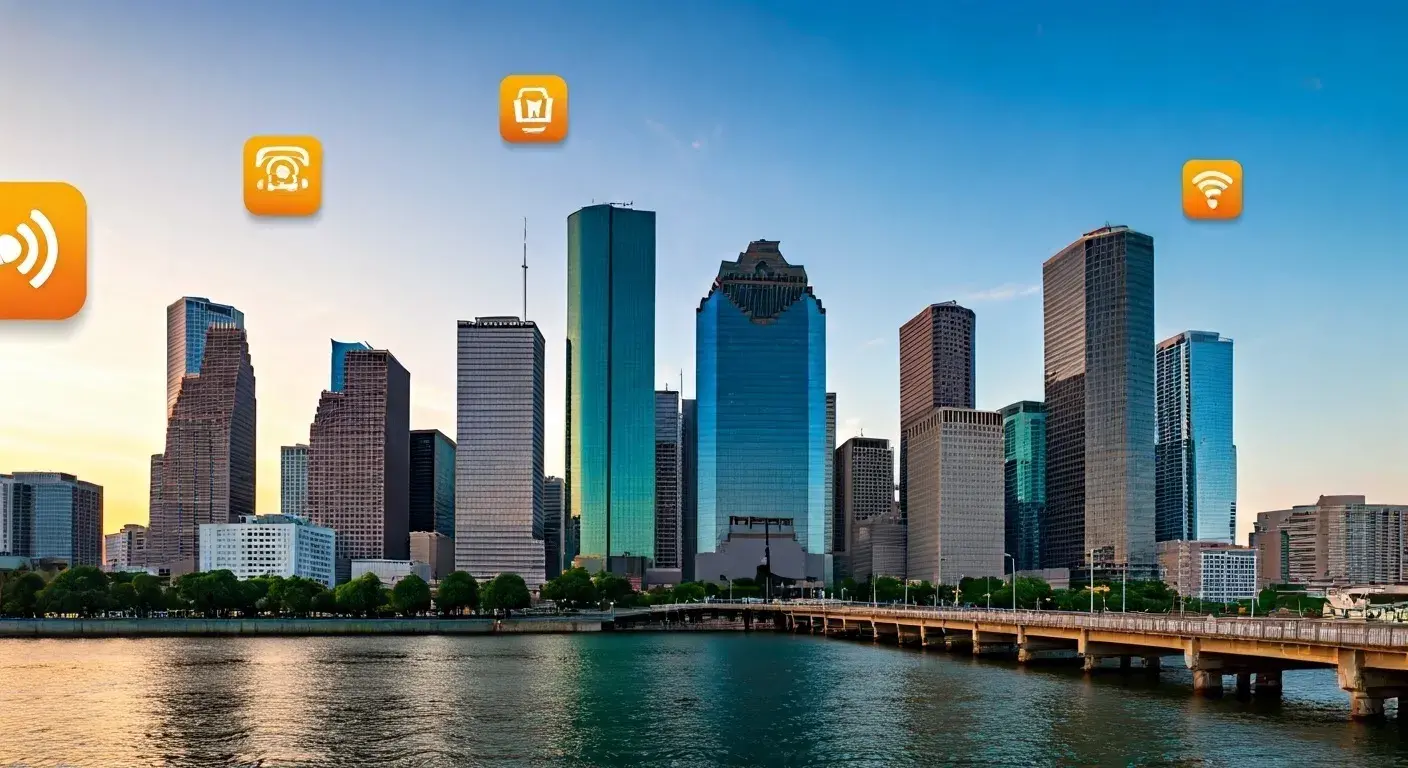
The world is being networked and the internet is replacing many aspects of our everyday existence. As we dedicate our time trying to gather information, be entertained or even just communicate, the basics of how we, as humans connect to the internet are paramount. There are two types of connection between our homes and devices, and the internet: WiFi and wired Internet. Although most people may consider WiFi and the internet as the same thing, they are not and one has to make a distinction.
As you read in previous chapters WiFi and the internet can be used interchangeably but there are differences between the two so in this blog post I will explain to clear the confusion that most people have of the two for you to know when to use WiFi and when to use the internet. Let's dive in!
1. Definition: WiFi vs. Internet
- WiFi: WiFi is an acronym for Wireless Fidelity, it is a wireless network common technology that consists of connecting devices to the Internet or different devices, without using cables or wires. This one enables people to connect to the World Wide Web and transfer data using the signal on the air. WiFi can be fix installed in homes, offices, café, airports or any place that requires an internet connection.
- Internet: The Internet is a system of inter-connective computer networks that provides logistic data and other resources through a communication protocol. The internet is used for communication using means such as email, chat, voice over IP, and video calls. It is an extensive knowledge database that may be used through varying forms of hardware including computers, smartphones and tablets.
2. Connectivity: Wired vs. Wireless
- WiFi: WiFi allows devices to access the internet without the use of cables and cords as I know it. This makes it possible to easily create a network and, importantly, connect several devices to the Internet at once.
- Internet: Internet connection may be classified as either the use of cables or the use of frequencies. Wired connections, commonly known as wired networks connect the devices directly to a modem or a router by using Ethernet cables giving a stable connection. However, its setting is confined to the wired devices that it can support and allow into the band.
3. Speed: Wired vs. Wireless
- WiFi: Though WiFi has advanced in capability to provide faster and more efficient connectivity than before, wired connections consistently provide faster internet connection. This is so because wired connections are less prone to signal attenuation than wireless connections. That is why WiFi is not very suitable for usage in households where a large amount of traffic is used or when there are multiple devices.
- Internet: Internet speed therefore depends on the service provider and more so the package that one subscribes to. However, with wired connections, the upload and download speeds will be higher than with WiFi, which will take less time on the Internet.
4. Range and Coverage
- WiFi: The biggest benefit of WiFi is that it can cover a huge area and make multiple devices connect to the internet within this area. WiFi signals range can be compared to the home or office which lets connect from one point to another without connection interruption. However, the strength of a signal tends to decrease as the distance between the device, such as a computer and a wireless router, expands.
- Internet: Internet connection does not have range and coverage problems because they relate to the service that provides you with connection to the World Wide Web and not the Wi-Fi system that transmits the connection to your devices.
5. Security Concerns
- WiFi: Outdoor WiFi networks are easily exposed to security threats as compared to wired networks because their nature is wireless. This component is just as important as all the others combined; it’s crucial to use a WiFi password and encrypt your connection.
- Internet: Most wired internet connections are believed to be safer than WiFi because they are deceptively easy to infiltrate. Still, it is important to realize that your network as well as the devices that are connected to the internet must be checked periodically and, if it is necessary, updated.
6. Cost and Accessibility
- WiFi: WiFi routers and adapters are relatively cheap because people and companies can easily acquire them and install a wireless network. It must also be noted that many of the modern devices also have WiFi capabilities hence allowing you to connect to the internet without cabled connections.
- Internet: Unfortunately, the cost of internet services depends on the internet service provider, type of plan, and geographical location. Some providers may provide WiFi routers for sale, or as part of a package deal, where customers pay for both wired broadband Internet and WiFi.
7. Final Thoughts
Therefore, even though WiFi and the internet seem to be the same thing, they each contribute to our internet provision differently. Wifi is the technology that enables us to use the internet without the use of wires while the Internet is the global network that enables us to search our information and also share information. Each of them has its strengths and weaknesses, which makes it possible for anyone reading this article to make wiser choices when installing networks in the home or office.
Finally, the decision to use either WiFi or a wired connection depends on the needs of the individual or organization, preference, and cost. Nowadays given the technological enhancements there are abundant opportunities to take advantage of wired and wireless networks in full integration to achieve efficient connectivity on the internet.






